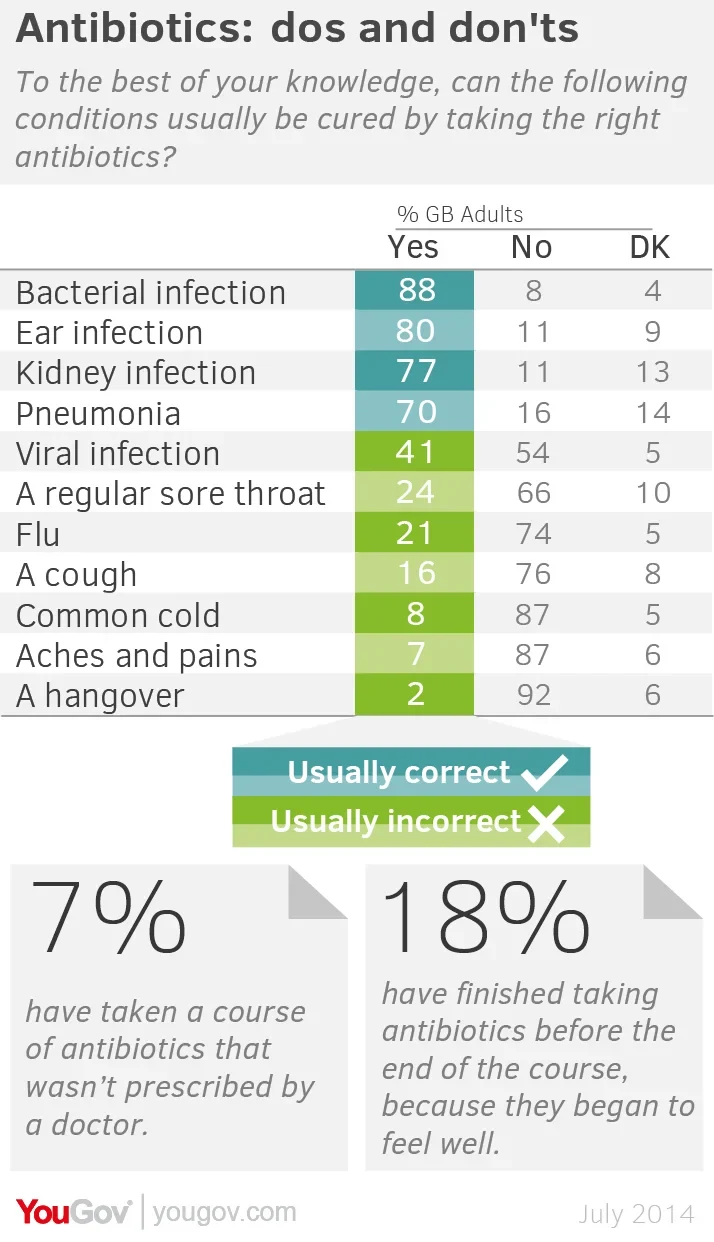Most British adults know when not to use antibiotics, but a sizeable minority have the wrong idea
David Cameron recently drew attention to the growing threat of antibiotic resistant strains of bacteria, saying the failure to act could cast the world “back into the dark ages of medicine”. MPs have also warned that antibiotics have come to be treated as a “cure-all” and called for new steps to stop doctors and vets from prescribing them when they are not essential. Antibiotics are drugs designed to kill bacteria and not viruses. Drug resistance can develop when antibiotics are given out for conditions they are not designed to treat, such as viral infections, and also when patients suffering from a bacterial infection quit their regimen too soon, before the bacteria is killed off completely.
New YouGov research suggests a significant minority of British adults are misinformed about when it is appropriate to use antibiotics.

In particular, 41% of British adults say a viral infection can usually be “cured” by taking the wrong antibiotics.
Between 16 and 24% also think antibiotics can usually cure ailments like a cough, the flu or a “regular” sore throat. While it is true that certain specific coughs and sore throats stemming from bacterial infections (like tonsillitis) can be cured with antibiotics, the NHS does not recommend using, because most coughs and sore throats are caused by viruses.
Another 8% say antibiotics can cure the common cold, which is always caused by a virus.
The survey also found that 7% of adults have used antibiotics when the drugs were not even prescribed by a doctor, and 18% have finished taking antibiotics before the end of a course. If a course is not completed, it is more likely that some bacteria will survive and develop resistance to the drug used.
NHS figures show that the prescription of antibiotic drugs has increased by 30% since the year 2000, and an estimated 5,000 people die each year because of drug-resistant strains of bacteria.
Image: Getty








